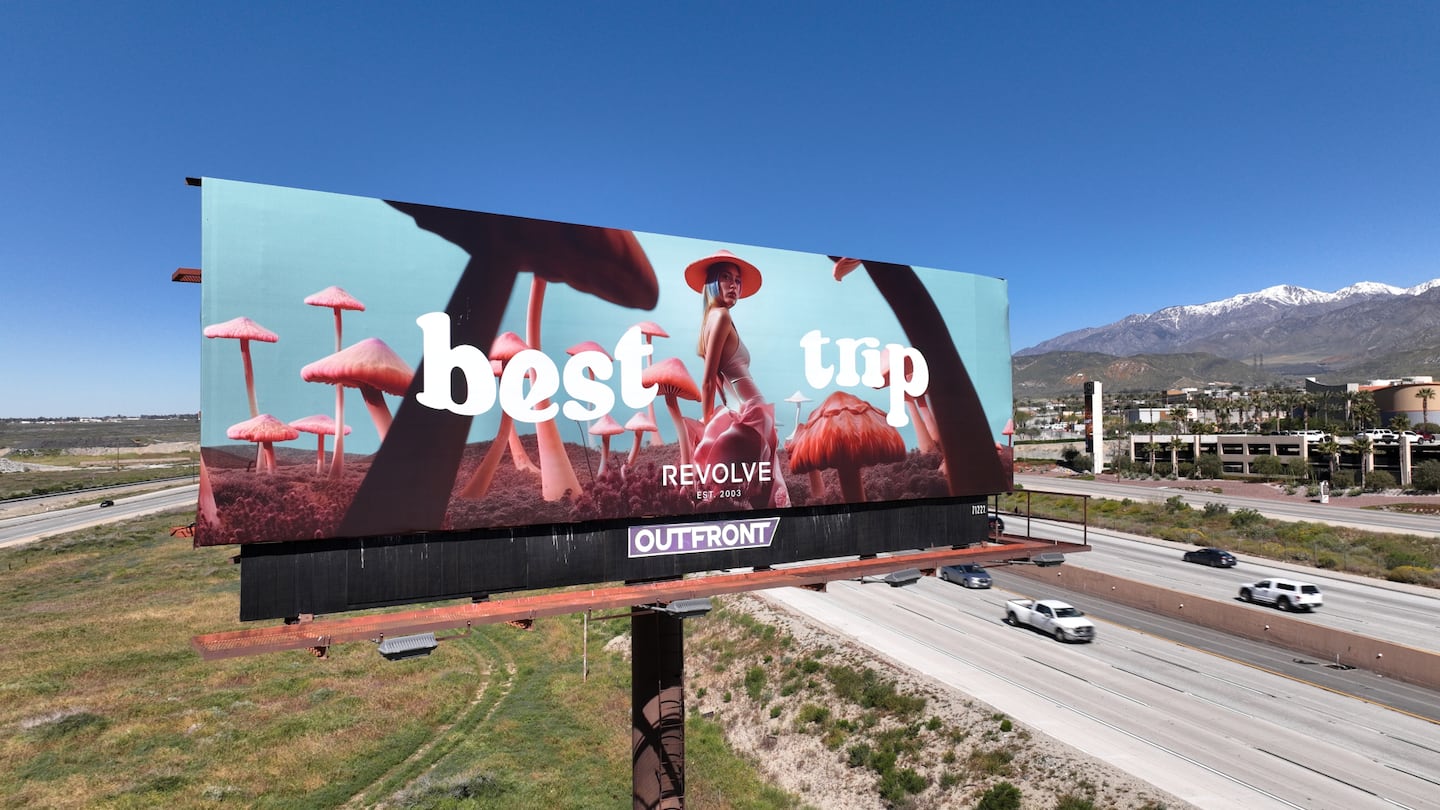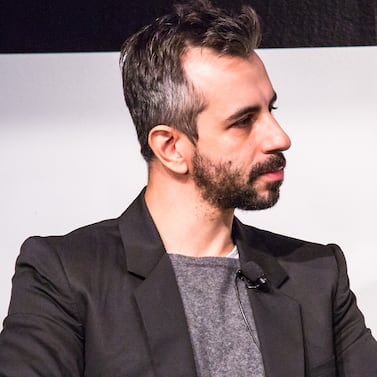
The Business of Fashion
Agenda-setting intelligence, analysis and advice for the global fashion community.

Agenda-setting intelligence, analysis and advice for the global fashion community.

It’s not just the tech world that’s buzzing about artificial intelligence.
On earnings calls, fashion and retail executives — and sometimes the analysts peppering them with questions — have been mentioning AI more frequently over the past few years. The increase suggests more companies have been adopting the technology, and perhaps giving it a shoutout to impress investors with their tech savvy.
A BoF analysis of transcripts from more than 30 public fashion, activewear and retail companies — mostly listed in the US but also including names such as Adidas, H&M and Kering listed on European exchanges — found mentions of AI, artificial intelligence and machine learning hit a new high in 2022. So far, 2023 is on track to surpass that figure, driven in part by the excitement around generative AI.
Image-generating tools and language models like ChatGPT have grabbed public attention and sparked interest among fashion businesses that see opportunities to put them to work. It’s driving more than just mentions of artificial intelligence.
ADVERTISEMENT
In the past, references to AI typically focused on its use for narrow business tasks like forecasting demand and optimising prices, along with marketing-related purposes like targeting high-potential customers. Now, on top of these capabilities, executives are talking about how they can use AI for design, hyper-personalised online shopping and more.
In May, for example, Revolve’s co-founder and co-chief executive, Michael Mente, said an area where he expects generative AI will have the most immediate impact is fashion design, calling it an opportunity “to create a more powerful, innovative and streamlined” process. The online retailer, which got 22 percent of its sales from its private-label brands in 2022, has already begun experimenting with AI-generated designs.
The same month, José Neves, Farfetch’s founder and chief executive, said large language models could allow for a “hyper-personalised” user interface that makes it easier for shoppers to discover products in its vast brand catalogue and to tell stories around them. A week later, Ralph Lauren’s chief financial officer, Jane Nielsen, noted the company is testing generative AI across multiple areas of the business “from copy editing and graphics to computer programming.”
Previously, fashion’s preferred uses of AI tended to focus on ways it could be used to derive insights from large amounts of data. Among the early adopters were companies such as Nike, H&M and Tapestry, owner of Coach and Kate Spade. During an Aug. 2018 call, Tapestry’s CEO at the time, Victor Luis, said the opportunity in data analytics “from the front to the back of house is boundless.” He went on: “We’ve created a learning agenda, which includes exploring AI and machine learning for inventory management, merchandising and pricing analytics, to name a few.”
More companies have taken up these uses over the years, though enthusiasm around the technology, at least in terms of who’s talking about it, hasn’t been equally distributed. Some companies seem more prone to bring it up than others. Levi’s, beginning in 2019, and Ralph Lauren, starting the next year, are among those to have referenced it numerous times. Levi’s, it’s worth noting, has invested heavily in the technology, even launching an internal AI bootcamp for employees.
Farfetch and Revolve have more recently joined in and been some of the most likely to mention AI. On its May 2023 call, Revolve executives referenced “AI” two dozen times, discussing how they’re using it to improve their product recommendations and search capabilities but also its use for an AI-generated billboard campaign and the company’s involvement in the first-ever AI fashion week. Michael Karanikolas, Revolve’s other co-founder and co-CEO, said they plan on “increasing investments in AI and tech,” which they believe is “a huge opportunity over the coming quarters and the coming year.”
Not everyone has been so talkative. In 2019 and 2020, Kering mentioned using artificial intelligence for targeting high-potential customers, product recommendation and forecasting, but it has since kept quiet. In LVMH’s transcripts over the past few years, no mentions of AI or machine learning appeared, including after it announced a prominent AI partnership with Google in 2021.
Still, the overall trend is clear: More companies are discussing the technology and holding it up as a competitive advantage. Now executives are also touting generative AI as a way to boost creativity and automate time-consuming or repetitive tasks, such as writing product descriptions.
ADVERTISEMENT
“One of the areas we are most excited about is the recent developments that large language models are bringing to the field of AI,” Neves said on Farfetch’s May call.
McKinsey, which found in a recent survey that organisations in several industries, including retail, were beginning to use generative AI, estimates the technology could raise operating profits in the fashion and luxury sectors as much as $275 billion in the next three to five years. Get ready to hear even more about AI in the future.
 Opens in new window
Opens in new windowFrom ChatGPT to Midjourney to Runway, the emerging technology is already showing why it could be one of the most consequential in decades for the fashion industry. Early adopters and experts unpack the opportunities and challenges of putting gen AI to use to design products, create campaigns and other content, and better connect with customers.
A new wave of ChatGPT assistants from companies like Shopify and Kering could transform how we shop online. It’s unclear how well they actually work, so BoF took them for a spin.
Supercharged chatbots, hyper-personalised marketing copy and new ways for shoppers to discover fashion online are just a few of the dream applications for ChatGPT and similar AI models.
BoF Insights’ guide to digital assets in fashion, which examines the rise of the metaverse and underlying technological, social and consumer shifts, plus includes a playbook for how to seize the opportunity.

Marc Bain is Technology Correspondent at The Business of Fashion. He is based in New York and drives BoF’s coverage of technology and innovation, from start-ups to Big Tech.
The algorithms TikTok relies on for its operations are deemed core to ByteDance overall operations, which would make a sale of the app with algorithms highly unlikely.
The app, owned by TikTok parent company ByteDance, has been promising to help emerging US labels get started selling in China at the same time that TikTok stares down a ban by the US for its ties to China.
Zero10 offers digital solutions through AR mirrors, leveraged in-store and in window displays, to brands like Tommy Hilfiger and Coach. Co-founder and CEO George Yashin discusses the latest advancements in AR and how fashion companies can leverage the technology to boost consumer experiences via retail touchpoints and brand experiences.
Four years ago, when the Trump administration threatened to ban TikTok in the US, its Chinese parent company ByteDance Ltd. worked out a preliminary deal to sell the short video app’s business. Not this time.